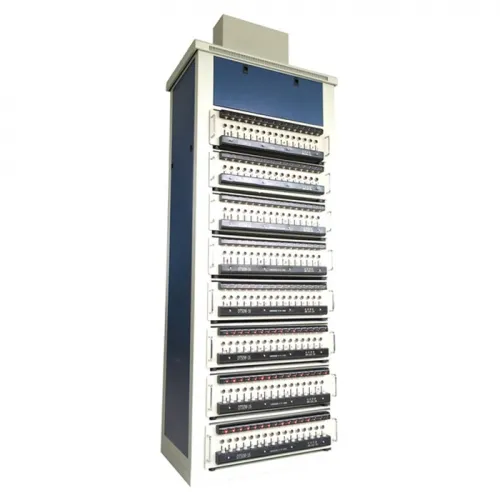Empowering the Future: Advancements in Lithium-Ion Battery Testing Technology
In this blog post, we will explore the latest advancements in lithium-ion battery testing technology that are shaping the future of energy storage.

The Role of Precision Equipment in Enhancing Battery Performance
Battery performance is a complex interplay of chemical composition, cell design, and manufacturing processes. However, it is during the testing phase that the potential of a battery truly comes to light. Modern testing equipment, such as the Battery Automated Testing System (BATS) from DK-Tester, offers a level of precision and repeatability that was once unachievable. This kind of equipment is crucial in understanding and improving the performance of lithium-ion batteries.
The BATS system, for instance, provides automated testing for key battery performance parameters, including capacity, energy, power, and internal resistance. With remarkable accuracy, manufacturers can pinpoint inefficiencies and reliability concerns in their batteries, facilitating targeted improvements.
Breakthrough Technologies in Charge and Discharge Testing
The charge and discharge cycle is a critical aspect of battery performance evaluation. Advanced testing technologies are now capable of simulating real-world usage scenarios with unparalleled fidelity. The latest equipment allows for variable-rate charge and discharge, as well as pulse load tests that mimic sudden demand spikes, like those experienced in automotive applications.
One groundbreaking technology is the use of ultrafast charging and discharging, which is being rapidly adopted by electric vehicle manufacturers. With this capability, testers can cycle batteries at an accelerated pace while maintaining the integrity of the test. Such innovations are invaluable in accelerating the development of high-performance battery systems.
Ensuring Safety and Reliability Through Innovative Testing Methods
Battery testing is not only about performance but also about safety and reliability. In the past, safety testing was a secondary consideration, often leading to unforeseen issues in the field. However, with advancements in test engineering, safety is now an integral part of the testing process.
For example, equipment such as the DK-Tester's BATS comes equipped with enhanced safety features, including smoke detection, fire suppression systems, and fume extraction. Modern testers also offer non-destructive testing capabilities, allowing manufacturers to analyze the battery’s health without compromising it.
How Modern Testers are Shaping the Development of High-Capacity Batteries
The race for high-capacity batteries is on, spurred by the growing demand for electric vehicles and sustainable energy solutions. High-capacity batteries must undergo rigorous testing to ensure they meet performance standards and are safe for use.
Cutting-edge battery testing equipment enables manufacturers to push the boundaries of battery capacity. With the ability to test large-format cells and batteries, testers are at the forefront of developing the next generation of energy storage solutions.
The Impact of Data Recording Capabilities on Battery Research
The voluminous data collected during battery testing can be overwhelming, but with the right tools, it can offer invaluable insights. Data recording capabilities in modern battery testers enable real-time analysis and the application of machine learning to predict battery behavior.
By harnessing this data, researchers can understand degradation patterns, optimize battery management systems, and inform the design of future battery generations. The result is a more informed and efficient approach to battery development that is propelling us toward a greener, more energy-secure future.
In conclusion, advancements in lithium-ion battery testing technology are not only vital for current battery R&D but are also instrumental in accelerating the pace of innovation. With technology like the DK-Tester's BATS leading the charge, we can expect batteries of the future to offer even greater energy density, longevity, and safety, ushering in a new era of energy storage.
Leave a Reply
- Advanced Battery Testing: Key to Efficient EV Manufacturing and Market Success
- Empowering Industries: Applications of Li-ion Battery Testing Equipment
- Maximize Your Electric Car's Performance with Our Battery Tester
- Advancing Electric Vehicle Performance with Lithium Battery Testing
- 5V 50A Electric Car Lithium Battery Charge Discharge Testing and Balance Repair Machine